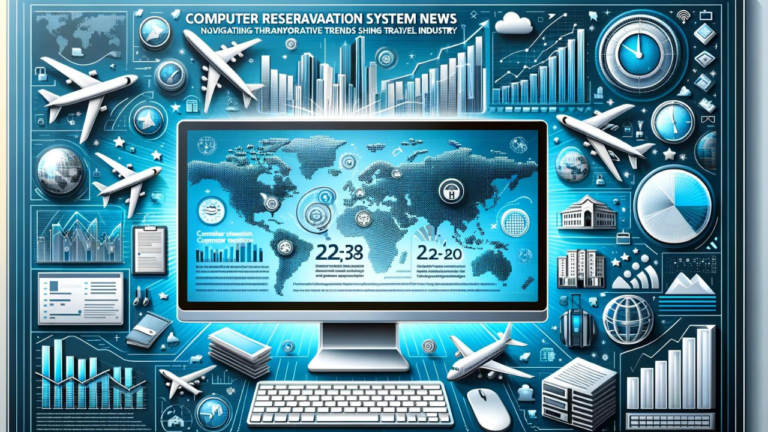The travel and tourism sector is increasingly dependent on technological advancements, particularly through the use of computer reservation systems (CRS). These systems have revolutionized how reservations are managed across various travel sectors, from airlines to hotels and car rentals. This article delves into the latest computer reservation system news, examining the technological shifts, market growth, regional trends, and future prospects.
Technological Evolution in Computer Reservation Systems
Recent computer reservation system news has highlighted significant advancements in technology, primarily through the integration of cloud computing and Software-as-a-Service (SaaS) models. These technologies facilitate greater scalability and accessibility, allowing travel agencies and other stakeholders to manage bookings more efficiently and remotely. As technology progresses, CRS providers are increasingly offering more sophisticated, integrated, and user-friendly platforms that enhance the user experience while ensuring operational efficiency.
Market Growth Drivers
A key driver in the CRS market is the rapid expansion of the travel and tourism industry, coupled with an increasing reliance on digital platforms for bookings. According to industry insights, the demand for seamless and efficient online booking experiences is surging, as evidenced by the growth of low-cost carriers and boutique travel agencies that rely heavily on robust computer reservation systems. The integration of these systems helps manage the higher volume of bookings, optimizing the process from start to finish.
Regional Insights and Trends
In terms of regional trends, North America remains at the forefront of CRS adoption, thanks to its early adoption of emerging technologies and substantial investment in R&D. However, the Asia-Pacific region is rapidly catching up, driven by an increase in internet penetration and a booming travel industry. This region’s growth is characterized by a shift towards digital solutions that cater to a growing base of tech-savvy consumers who prefer making travel arrangements online.
Future Directions in CRS
Looking ahead, the trajectory of computer reservation system news points towards an era of personalization and enhanced customer service. Future CRS platforms are expected to leverage artificial intelligence and machine learning to offer personalized travel recommendations and dynamic pricing models. Furthermore, the increasing use of mobile devices for bookings is pushing CRS providers to develop more mobile-friendly solutions that cater to on-the-go consumers.
Challenges and Considerations
Despite the optimistic outlook, the CRS market faces challenges such as data security concerns and the need for constant technological upgrades. As systems become more interconnected, the potential for cyber threats increases, necessitating robust security measures to protect sensitive customer data.
Conclusion
The future of travel and tourism is inherently linked to the evolution of computer reservation systems. As these systems become more integrated into the fabric of the travel industry, they will play a pivotal role in shaping how travel products are marketed, sold, and managed. Stakeholders must stay abreast of the latest computer reservation system news to not only leverage these technologies but also anticipate future trends that could impact their operations and customer satisfaction.
FAQs on Computer Reservation System News
What is a Computer Reservation System (CRS)?
A CRS is a digital platform that facilitates the booking and management of travel services, including flights, hotels, and car rentals. It allows for efficient handling of large volumes of bookings, enhancing both operational efficiency and customer experience.
Why are CRS technologies important for the travel industry?
CRS technologies streamline the booking process, reduce errors, and provide real-time data that helps travel businesses manage inventory and customer preferences effectively, ultimately boosting profitability and customer satisfaction.
What are the latest trends in CRS technologies?
Recent trends include the integration of AI for personalized service offerings, adoption of cloud-based systems for better scalability, and enhanced mobile functionalities to accommodate the increasing use of smartphones for bookings.
How do regional differences affect CRS adoption? Differences in technological adoption, internet accessibility, and consumer behavior influence CRS adoption. Regions like North America lead due to advanced infrastructure, whereas regions like Asia-Pacific are rapidly growing due to increasing digital literacy and travel demand.
What future innovations are expected in CRS?
Future innovations may include more robust AI capabilities for predictive analytics, enhanced security features to protect against cyber threats, and further integration of mobile technologies to support seamless, on-the-go booking experiences.


